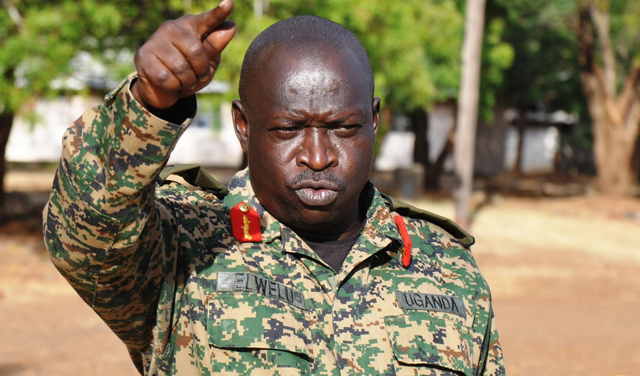
Lt. Gen Peter Elwelu's military career, marked by significant contributions, took a controversial turn last evening when he was among the officials struck by sanctions by the United States. The big question however is, Who is Peter Elwelu?
His command of an operation left the Rwenzururu kingdom palace in Kasese Town in ruins and resulted in dozens of deaths. Among those affected was King Charles Wesley Mumbere, who faced the public humiliation of arrest before his subjects.
Elwelu, who joined the armed forces in 1987, initially gained recognition for his exceptional performance as the commander of Uganda’s first military contingent in Somalia under the African Union's AMISOM mission. Alongside then Inspector General of Police Kale Kayihura and current UPDF 3rd Division commander Dick Olum, Elwelu played a key role in preparing Ugandan troops for deployment to Mogadishu, a city then controlled by the militant group Al Shabaab.
His mission focused on the refresher training and operational readiness of UPDF soldiers, preparing them for the challenges in Somalia, a country where American Special Forces had faced a notorious defeat in the early 1990s. President Museveni, the Commander-in-Chief of the armed forces, entrusted Brigadier Elwelu, at the time with the command of the first Ugandan contingent in Somalia.
Elwelu earned respect and accolades from the then Chief of Defence Forces, General Katumba Wamala, for his strategic decision to establish the AMISOM base at Hareni instead of the originally proposed seaside location. However, the respect and praise he garnered were overshadowed by the violent events at the Buhikira palace.
In a shocking turn of events, then Brigadier Elwelu ordered the indiscriminate bombing of the royal grounds. By evening, the palace was reduced to charred bodies of royal guards and smoldering ashes of torched shrines, which had housed priceless cultural artifacts. The security lockdown in Kasese Town left the area in turmoil.
"We are going to remain in place until there is no more tension and no more criminals in the region... The operation is still ongoing," Brigadier Elwelu stated, referring to the deceased as "terrorists," a term he had adopted from his experience in Somalia.
A video broadcast by NBS captured police handling King Mumbere like a common criminal, gripping him by the waistline of his trousers. The incident evoked memories of the 1966 invasion of the Kabaka’s palace by Milton Obote’s government, which led to the abolition of kingdoms in Uganda. The political repercussions of the 1966 Buganda crisis still linger, and the long-term implications of the November 2016 event remain uncertain.
Despite the controversy, Elwelu remained unfazed, maintaining a media charm offensive that allowed the security forces to control the narrative of the bloody incursion. The military kept the palace and nearby health facilities off-limits to civilians and journalists. Ugandan journalist Joy Doreen Biira, working with Kenya Television Network (KTN), was detained by police on suspicion of documenting witness testimonies and graphic images of the raid.
Police reported a total of 62 deaths, though independent verification of these figures was not possible due to the military and police restrictions. The events of November 2016 in Kasese continue to resonate, leaving a lasting impact on the region and raising questions about the future of Uganda's political landscape.

















